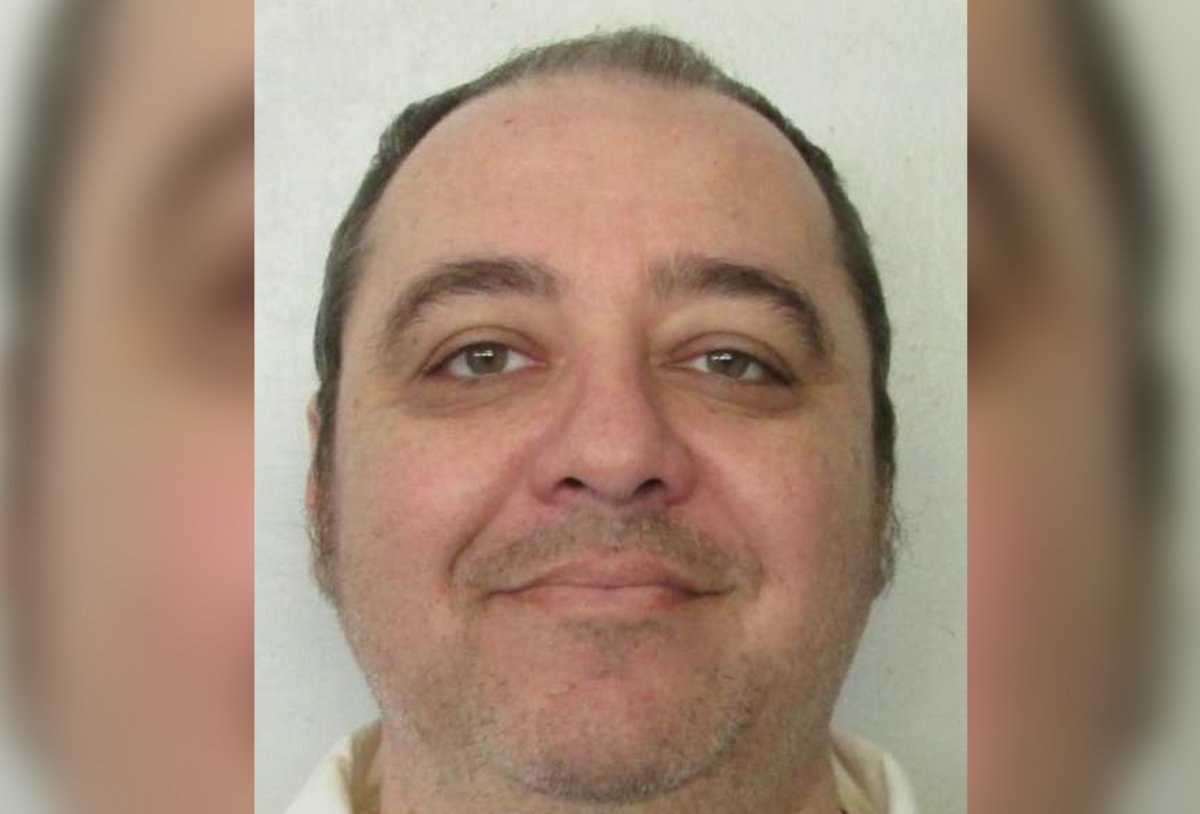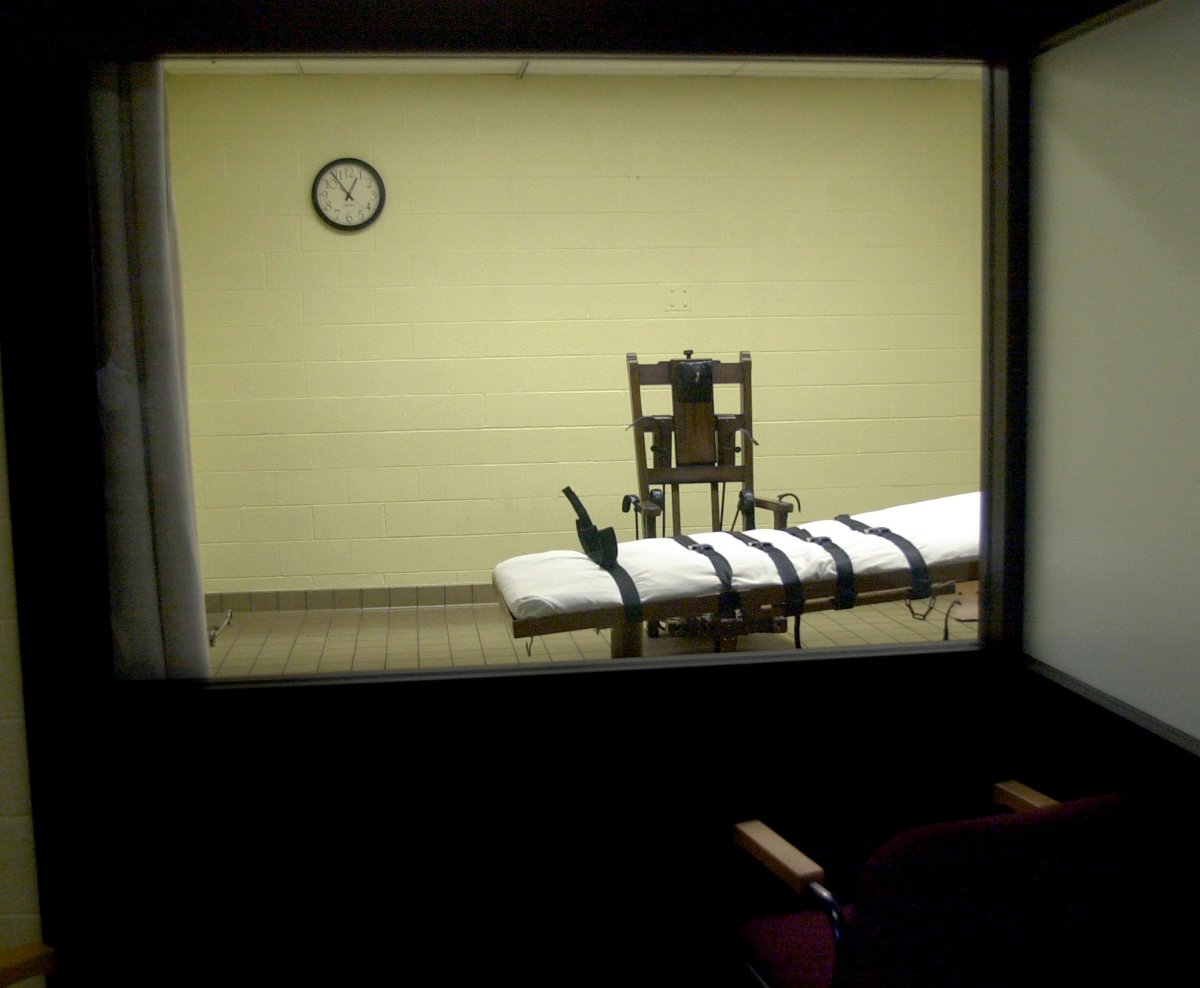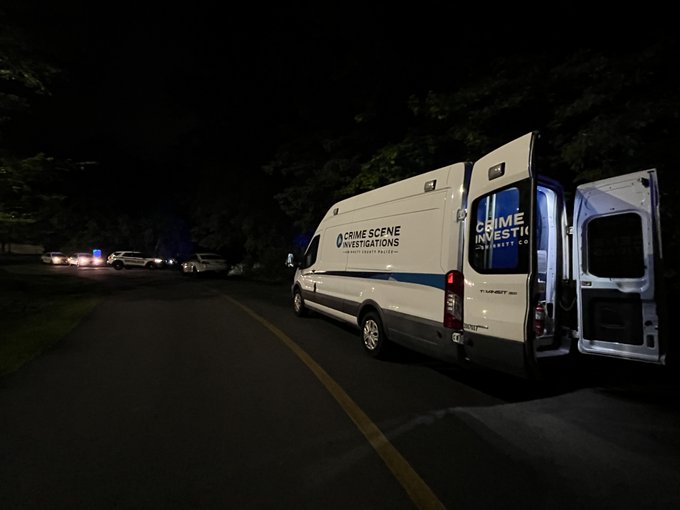Alabama is in line to become the first state to execute an inmate by making him breathe pure nitrogen, but death penalty experts have told Newsweek that the state's protocol is "sloppy" and labeled it "short on details, and long on hope."
Nitrogen hypoxia has been authorized as an execution method in three states—Alabama, Oklahoma and Mississippi—but none have ever used the method to carry out a death sentence. That could change if Alabama is allowed to use nitrogen gas to execute Kenneth Smith—a man who was subjected to a botched lethal injection last year.
Alabama Attorney General Steve Marshall in August asked the Alabama Supreme Court to set an execution date for Smith using nitrogen hypoxia as the method. Smith, 58, was convicted in the 1988 murder-for-hire killing of Elizabeth Sennett.

The attorney general's office included a redacted copy of its nitrogen hypoxia protocol in a court filing that asked a judge to dismiss a lawsuit filed by Smith. The suit, seeking to block the state's latest attempt to execute Smith by lethal injection, argued that nitrogen hypoxia should be available. An attorney for Smith declined to comment.
Nitrogen makes up 78 percent of the air that people breathe and the gas is harmless when inhaled with proper oxygen levels. But under the proposed nitrogen hypoxia method, an inmate would be forced to breathe only nitrogen, meaning they would be deprived of oxygen and die.
Proponents argue the method would be painless, but opponents have decried it as human experimentation.
What does the protocol say?
According to the protocol described in the redacted court filing, the condemned inmate is escorted to the execution chamber and placed on a gurney. A pulse oximeter, a device that measures a person's heart rate and oxygen levels in the blood, is secured on the inmate and a mask fitted over their face.
After the warden reads the death warrant and gives the inmate a chance to give a final statement, execution team members would then make a final inspection of the mask and the warden, from another room, would "activate the nitrogen hypoxia system."
Nitrogen gas "will be administered for 15 minutes or five minutes following a flatline indication on the EKG, whichever is longer," the protocol says.
Alabama's report is the first time any state has made a nitrogen hypoxia protocol public, said Deborah Denno, a death penalty expert and professor at Fordham Law School.
"Yet, at no time does Alabama ever state, step-by-step, how such a nitrogen hypoxia execution shall proceed," Denno told Newsweek. "The reader only deduces the procedure that executioners will use by way of heavily redacted depictions of what will occur."
Unlike lethal injection and electrocution, which have been used in executions for decades, experts can "only speculate about how a state might conduct a nitrogen hypoxia execution," Denno said. "This is a vague, sloppy, dangerous, and unjustifiably deficient protocol made all the more incomprehensible by heavy redaction in the most important places."
What could go wrong?
Like lethal injection, nitrogen hypoxia "impersonates a medical act, but it is nothing of the sort," Joel Zivot, a professor of anesthesiology at Emory University and an expert on lethal injections, told Newsweek. "Pure nitrogen gas has no therapeutic purpose and is an odorless, colorless gas that does not fuel bodily functions. If anyone breathes it, they could die."
According to Zivot, because nitrogen is not an intoxicant, but an asphyxiant, it is "even worse than lethal injection."
"This is akin to death by being ejected into the vacuum of space," he said.
He criticized Alabama's proposed protocol as "short on details, and long on hope."
Execution by nitrogen hypoxia "is the functional equivalent of placing a pillow over someone's face and slowly suffocating him," said Robin Maher, the executive director of the Death Penalty Information Center.
"No state in the country has ever used this method, so no one knows how long the process will take, what risks there will be for prison staff, or what pain and suffering Mr. Smith will experience before he suffocates to death. There are simply too many unanswered questions about this protocol and too many ways it could all go wrong."

Robert Dunham, the director of the Death Penalty Policy Project and an adjunct professor at the Temple University Beasley School of Law, said Alabama "seems to value secrecy more than public oversight that could make the process less dangerous."
He told Newsweek: "No one knows for certain whether nitrogen hypoxia executions will work the way its proponents hope it will; whether the gas will be properly and safely delivered from the nitrogen cylinders to the death mask; whether death will be quick or prolonged; whether unsafe levels of gas will leak into the execution chamber or the viewing areas and endanger execution personnel and witnesses, and whether the prisoner's body will retain dangerous levels of the gas that could pose health risks to those conducting the autopsy.
He added: "It's not just Kenneth Smith who is a guinea pig. It's the execution personnel, too."
What do proponents say?
Alabama lawmakers approved nitrogen hypoxia as an alternate execution method in 2018, amid difficulty obtaining the drugs needed for lethal injections and litigation challenging lethal injection.
"It's readily available. It's 78% of the air we breathe, and it will be a lot more humane to carry out a death sentence," Trip Pittman, the former Alabama state senator who proposed the new execution method, told The Associated Press.
Pittman said the inmate will pass out, like aircraft passengers do when a plane depressurizes, and then die.
He also hit back at criticism that the method is experimental, saying that although no state has carried out a death sentence with nitrogen, people have died by breathing nitrogen during industrial accidents and suicide attempts, so the effects are known.
Alabama's history of botched executions
Dunham and Maher also criticized Alabama for wanting to execute Smith with an unprecedented method when it has a history of botched and flawed executions.
The heavy redactions in the nitrogen hypoxia protocol mean the public are left to trust a state that "botched its last three execution attempts and denied that anything went wrong," Dunham said.
Alabama tried to execute Smith by lethal injection in November last year, but called it off after officials couldn't find a suitable vein in which to inject the drugs before a midnight deadline. The ordeal "caused him great physical pain and mental trauma," his wife told Newsweek at the time.
It came after Alan Miller's execution was called off in September 2022 because of difficulty accessing his veins. Advocacy groups say the execution of Joe James Jr. in July last year, which took place after a 3-hour delay because of issues establishing an IV line, was also botched.
Alabama Gov. Kay Ivey announced a pause on executions to conduct an internal review of lethal injection procedures a day after Smith's aborted execution. The state resumed lethal injections in July.
"Alabama botched three successive executions in 2022," Maher said. "Why isn't the state focused on trying to understand what went wrong and why, instead of experimenting with a new and unproven method of execution?"
Newsweek has contacted Ivey's office and the Alabama Department of Corrections for comment via email.
Update 9/6/23, 3:30 a.m. ET: This article has been updated to add details about what a pulse oximeter does.
Uncommon Knowledge
Newsweek is committed to challenging conventional wisdom and finding connections in the search for common ground.
Newsweek is committed to challenging conventional wisdom and finding connections in the search for common ground.
About the writer
Khaleda Rahman is Newsweek's Senior News Reporter based in London, UK. Her focus is reporting on abortion rights, race, education, ... Read more
To read how Newsweek uses AI as a newsroom tool, Click here.






